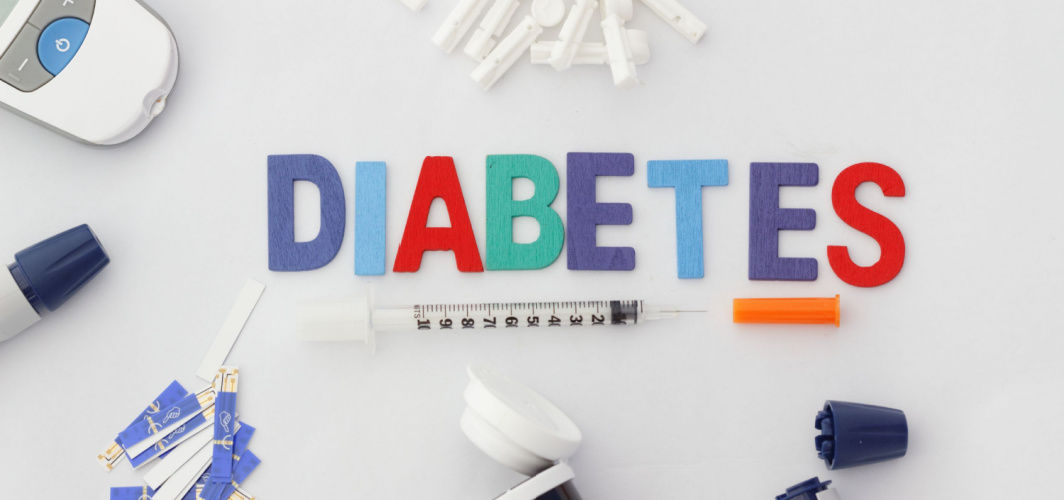Diabetes Management
How to Control Your Blood Sugar This Navratri
3 min read
By Apollo 24|7, Published on - 13 October 2023, Updated on - 27 October 2023
Share this article
0
0 like

Navratri, a nine-day festival celebrated with great enthusiasm across several parts of the country, involves fasting as a way of paying homage to the goddess Durga. While fasting is an integral part of Navratri traditions, it can be challenging for individuals with diabetes. But, with careful planning and awareness, you can keep your blood sugar levels in check during this festive period. Here are nine essential tips to help you keep your diabetes in check during Navratri:
- Consult Your Healthcare Provider
Before embarking on a fasting journey during Navratri, it is crucial to consult your healthcare provider. They can provide personalised guidance, make necessary adjustments to your medications, and offer valuable advice on managing diabetes while fasting.
- Choose Low-Glycemic Foods
Opt for low-glycemic index (GI) foods that have a slower impact on blood sugar levels. Some suitable options for Navratri fasting include buckwheat flour (kuttu), water chestnut flour (singhara), and amaranth seeds (rajgira). These choices can help stabilise your blood sugar levels.
- Portion Control
Even healthy foods can affect blood sugar levels if consumed excessively. Practise portion control to prevent over-eating. Smaller, balanced meals at regular intervals can help regulate your glucose levels throughout the day.
- Include Protein Sources
Incorporate protein-rich foods such as low-fat yoghurt and nuts into your fasting diet. Protein helps control hunger and keeps you feeling full, reducing the temptation to snack on high-carb foods.
- Healthy Fats
Include sources of healthy fats like avocado, nuts, and seeds in your fasting meals. These fats provide sustained energy and can help stabilise blood sugar levels.
- Stay Hydrated
Dehydration can affect blood sugar levels; hence, it is essential to stay hydrated during Navratri fasting. Drink plenty of water, coconut water, and herbal teas to keep your body hydrated. Avoid sugary drinks and excessive caffeine.
- Monitor Blood Sugar
Frequent monitoring of your blood sugar levels is crucial during fasting periods. Keep a glucometer on hand to check your levels regularly, ensuring they remain within your target range.
- Mindful Sweets
Navratri often involves special sweets and desserts. If you have diabetes, opt for sugar-free or low-sugar alternatives. Be mindful of portion sizes and try to limit your consumption of sweets, even those with reduced sugar content.
- Break Your Fast Wisely
When breaking your fast, start with a light and balanced meal. Include vegetables, protein sources, and complex carbohydrates like sweet potatoes or ramdana (amaranth). This approach helps prevent rapid spikes in blood sugar levels.
Conclusion
Navratri is a time for spiritual reflection and celebration. While managing diabetes during fasting can be challenging, it is entirely possible with the right strategies and careful choices. By following the nine tips mentioned above, you can enjoy the festivities while maintaining stable blood sugar levels and good health.
Diabetes Management
Consult Top Diabetologists
View AllLeave Comment
Recommended for you

Diabetes Management
Top 5 Misconceptions About Diabetes- Know The Facts Here!
Diabetes is one of the leading global public health concerns. Despite its increasing prevalence around the world, there are plenty of myths and misconceptions associated with the condition and its treatment. To deal with diabetes, it’s vital to know what’s true and what’s not. So, here is more about some common misconceptions about diabetes and the truth behind them.

Diabetes Management
Useful Tips for Diabetics Taking up Long-distance Running
Before running, check blood sugar levels and adjust carbohydrate intake accordingly. Carry glucose tablets or energy gels for energy and glucose boosts. Stay hydrated by drinking small amounts frequently during the run. It's helpful to have a running companion for first-aid support in case of low blood sugar. Carry medical ID or contact details for emergencies.

Diabetes Management
10 Simple Lifestyle Changes To Lower Your Risk of Diabetes
Type 2 diabetes can usually be prevented by taking some simple steps. Lifestyle changes such as reducing carb intake, exercising regularly, reducing portion sizes, consuming a high-fibre diet, limiting alcohol consumption, and incorporating healthy fats can significantly reduce the risk of diabetes.
Subscribe
Sign up for our free Health Library Daily Newsletter
Get doctor-approved health tips, news, and more.
Visual Stories

8 Fruits That are Incredibly Healthy for Diabetes
Tap to continue exploring
Recommended for you

Diabetes Management
Top 5 Misconceptions About Diabetes- Know The Facts Here!
Diabetes is one of the leading global public health concerns. Despite its increasing prevalence around the world, there are plenty of myths and misconceptions associated with the condition and its treatment. To deal with diabetes, it’s vital to know what’s true and what’s not. So, here is more about some common misconceptions about diabetes and the truth behind them.

Diabetes Management
Useful Tips for Diabetics Taking up Long-distance Running
Before running, check blood sugar levels and adjust carbohydrate intake accordingly. Carry glucose tablets or energy gels for energy and glucose boosts. Stay hydrated by drinking small amounts frequently during the run. It's helpful to have a running companion for first-aid support in case of low blood sugar. Carry medical ID or contact details for emergencies.

Diabetes Management
10 Simple Lifestyle Changes To Lower Your Risk of Diabetes
Type 2 diabetes can usually be prevented by taking some simple steps. Lifestyle changes such as reducing carb intake, exercising regularly, reducing portion sizes, consuming a high-fibre diet, limiting alcohol consumption, and incorporating healthy fats can significantly reduce the risk of diabetes.
